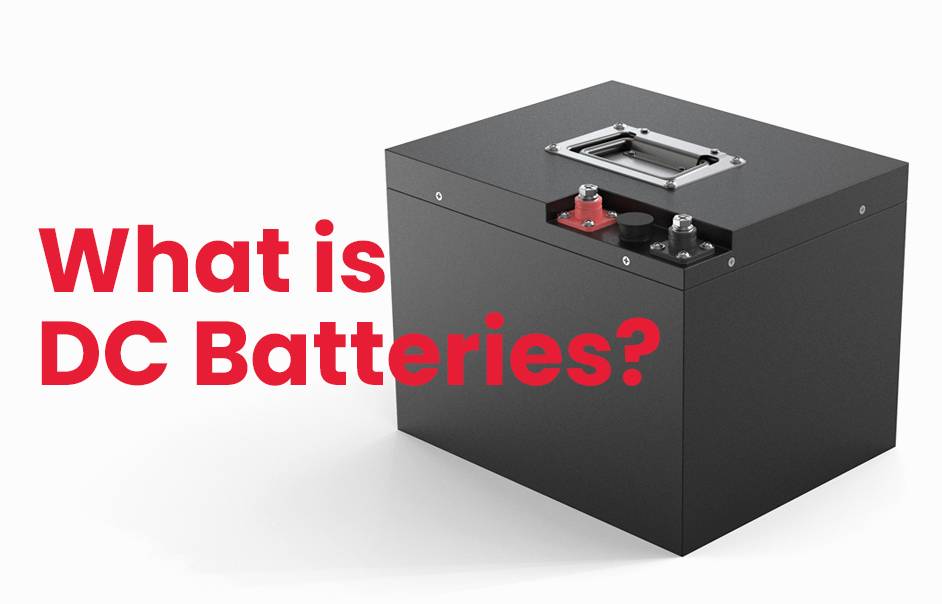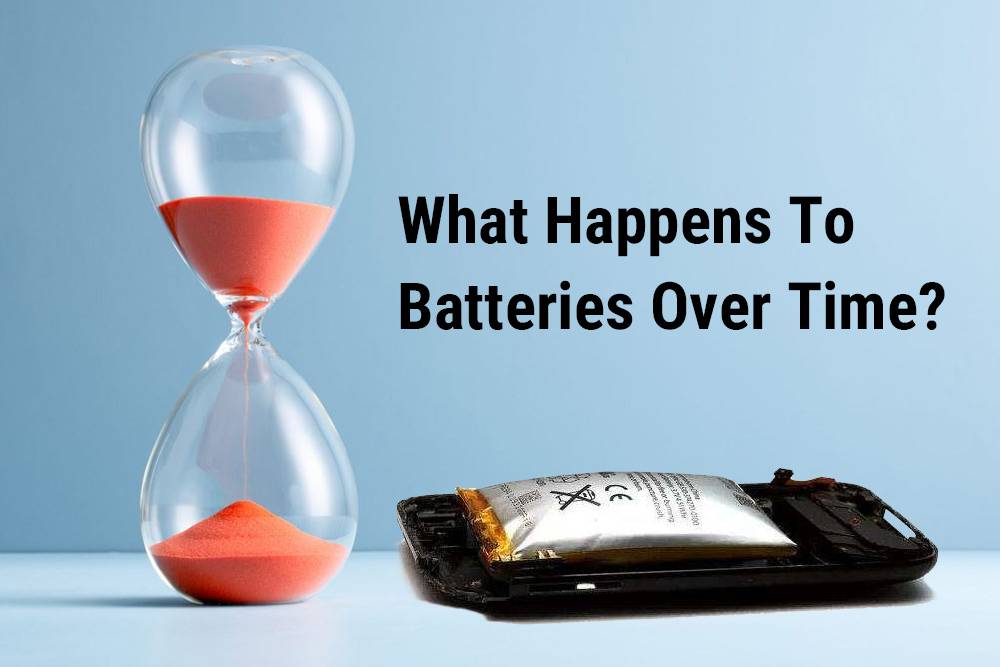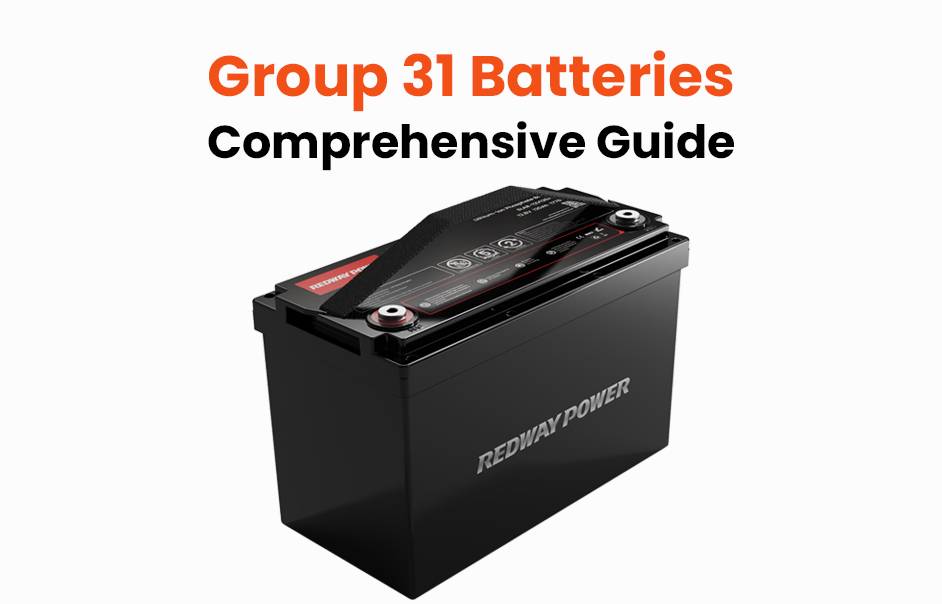Welcome to the world of DC batteries! Whether you love tech, care about the environment, or need portable power, understanding these energy storage devices is crucial. From gadgets to emergency systems, DC batteries are vital. This blog explores their workings, types, pros/cons, common uses, and maintenance tips.
What are DC batteries? How Do They Work?
What are DC batteries? DC batteries, or direct current batteries, are vital power sources in our daily lives. Ever wondered how these compact devices operate? Let’s delve into the key workings of DC batteries.
- Unidirectional Flow of Electric Charges:
- DC batteries function by directing electric charges in one consistent direction, unlike AC batteries that alternate current direction. This unidirectional flow is crucial for powering electronic devices effectively.
- Chemical Reaction and Terminals:
- Inside a typical DC battery are positive and negative terminals connected to an electrolyte solution containing chemicals like lead-acid or lithium-ion compounds. When linked to a circuit, a chemical reaction occurs, allowing electrons to move from the negative to positive terminal, generating electric current.
- Powering Electronic Devices:
- The electron flow produced powers various devices such as flashlights and remote controls. The size and capacity of a DC battery determine its ability to supply power, with larger capacity batteries offering longer-lasting electricity before requiring recharging or replacement.
Understanding the operation of DC batteries empowers effective use and informed decision-making when choosing batteries for specific applications. While harnessing their power, it’s crucial to note precautions against overcharging or short-circuiting to ensure both the battery and connected devices remain undamaged.

Types of DC Batteries
- Lead-Acid Batteries:
- Commonly used in vehicles, lead-acid batteries are known for their reliability and high power output, making them suitable for automobiles.
- Lithium-Ion Batteries:
- With a lightweight design and long-lasting performance, lithium-ion batteries are popular in electronic devices like smartphones, laptops, and electric vehicles.
- Nickel-Cadmium (NiCd) Batteries:
- Offering a balance between cost and performance, NiCd batteries have high energy density and can be recharged multiple times without capacity loss.
- Nickel-Metal Hydride (NiMH) Batteries:
- Suitable for specialized applications, NiMH batteries provide higher energy densities than NiCd batteries but come at a higher cost.
- Alkaline Batteries:
- Ideal for household appliances like remote controls and flashlights, alkaline batteries deliver reliable power for various everyday uses.
Conclusion: Choosing the right DC battery type depends on factors such as capacity, size constraints, budget, and specific application requirements. Understanding the characteristics of each type helps in selecting the most suitable battery for diverse needs.

Advantages and Disadvantages of Using DC Batteries
DC batteries, or direct current batteries, have distinct advantages that make them a popular power choice. Let’s explore their key benefits and drawbacks for a clearer understanding.
- Steady and Reliable Power Supply:
- A primary advantage of DC batteries is their ability to provide a consistent and reliable power supply. Unlike AC batteries, they generate electricity directly, eliminating the need for external power sources to convert AC to DC.
- Efficiency in Power Delivery:
- DC batteries exhibit high efficiency in power delivery, as there are no energy losses during the AC to DC conversion process. This makes them ideal for devices requiring continuous and stable power.
- Longer Lifespan:
- DC batteries are designed with durable materials and advanced technologies, contributing to a longer lifespan compared to other battery types. This durability enhances overall performance and longevity.
- Limited Energy Storage Capacity:
- Despite their advantages, DC batteries may have limited energy storage capacity due to their compact size and design constraints. Larger or specialized battery systems may offer greater storage capabilities.
- Upfront Cost Consideration:
- Some types of DC batteries can be initially expensive compared to alternative options. However, it’s crucial to weigh the long-term benefits and potential cost savings associated with efficient and durable battery technology.
Understanding the advantages and disadvantages of DC batteries enables informed decisions based on specific application needs. While they offer steady power and efficiency, factors like limited energy storage and upfront costs should be considered for practical and cost-effective use.
Common Uses for DC Batteries
Common Uses for DC Batteries:
- Portable Electronic Devices:
- DC batteries power everyday electronics like smartphones, tablets, and laptops, ensuring efficient operation for users on the go.
- Automotive Vehicles:
- In automobiles, DC batteries, often 12-volt, play a vital role in starting engines and operating systems such as lights, radio, and air conditioning, ensuring proper vehicle function.
- Renewable Energy Systems:
- DC batteries are integral to renewable energy systems, storing excess energy from sources like solar panels and wind turbines during peak production. This stored energy is released during low or no production periods, ensuring a stable electricity supply.
- Emergency Backup Power Systems:
- Crucial during blackouts or natural disasters, DC batteries provide reliable power for emergency backup systems. This enables essential services like hospitals, communication networks, and emergency response teams to continue functioning.
- Marine Applications:
- In marine environments, DC batteries are widely used in boats and yachts, providing electrical power for navigation equipment, lighting, refrigeration units, and other onboard amenities.
Versatile and reliable, DC batteries play essential roles in various industries and applications, from powering portable electronics to supporting renewable energy initiatives and serving as backup solutions in emergencies. Their adaptability makes them indispensable in ensuring continuous and efficient operations across diverse sectors.

Maintenance and Safety Tips for DC Batteries
Maintenance and Safety Tips for DC Batteries:
- Terminal Inspection and Cleaning:
- Regularly check battery terminals for corrosion, hindering electricity flow. Clean any build-up with a mixture of baking soda and water using a small brush or cloth.
- Casing Examination:
- Inspect batteries for leaks or cracks in the casing. Replace damaged batteries immediately, as leaks pose safety hazards and indicate malfunction.
- Proper Storage Conditions:
- Store DC batteries in a cool, dry place away from direct sunlight or heat sources. Extreme temperatures can negatively impact performance and lifespan.
- Protective Gear:
- When handling batteries, wear protective gloves and goggles to guard against potential acid exposure, ensuring safety during maintenance.
- Avoid Mixing Batteries:
- Never mix old and new batteries or use different types simultaneously to prevent voltage irregularities, maintaining optimal battery performance.
- Proper Disposal:
- Dispose of used batteries responsibly. Many recycling centers accept them for proper disposal, preventing harmful chemicals from entering landfills.
Incorporating these maintenance and safety practices into your routine ensures the longevity, efficiency, and safety of your DC batteries. Regular inspections, proper storage, protective gear, and responsible disposal contribute to optimal battery performance and minimize potential risks.
What are AC batteries? How Do They Work?
The term “AC batteries” is not commonly used, as batteries typically provide direct current (DC) rather than alternating current (AC). However, if you’re referring to devices that convert AC power to DC power for use with battery-operated devices, you might be talking about AC adapters or power converters.
AC adapters or converters work by taking the alternating current (AC) from a power outlet and converting it into direct current (DC) suitable for use by electronic devices such as laptops, smartphones, or rechargeable batteries. These devices typically contain components such as transformers, rectifiers, and voltage regulators to modify the electrical current to the appropriate voltage and polarity required by the device being powered.
So, in short, while there aren’t typically “AC batteries,” devices like AC adapters or converters facilitate the use of AC power to charge or power devices that operate on DC.
DC vs AC batteries
Let’s clarify the difference between DC and AC batteries:
- DC Batteries (Direct Current Batteries):
- DC batteries produce direct current, where the flow of electric charge is consistently in one direction.
- They are the most common type of batteries and are used in a wide range of applications, including portable electronics, vehicles, and renewable energy systems.
- Examples of DC batteries include alkaline batteries, lithium-ion batteries, lead-acid batteries, and nickel-metal hydride batteries.
- In DC batteries, chemical reactions within the battery generate a flow of electrons from the negative terminal (anode) to the positive terminal (cathode), creating a direct current.
- AC Batteries (Alternating Current Batteries):
- The term “AC batteries” is less common because batteries typically provide DC power. However, there are some experimental or specialized batteries that can provide alternating current.
- AC batteries would theoretically produce alternating current, where the flow of electric charge periodically reverses direction.
- AC is commonly used in electrical grids and household power outlets. Batteries that produce AC might be used in specific applications where alternating current is required, such as certain types of electrical machinery or equipment.
- However, such batteries are not as common as DC batteries, and their applications are more specialized.
In summary, DC batteries provide direct current, which is the standard form of electrical power for most battery-operated devices. AC batteries, although less common, would theoretically provide alternating current, but they are not widely used compared to DC batteries.

FAQs
Is AC battery better than DC?
AC batteries are not inherently “better” than DC batteries, as their suitability depends on the specific application. DC batteries are more common and versatile, powering the majority of portable electronics, vehicles, and renewable energy systems. AC batteries are less common and are typically used in specialized applications where alternating current is required, such as certain types of electrical machinery.
Are household batteries AC or DC?
Household batteries are typically DC (direct current) batteries. They provide a steady flow of electrical charge in one direction, suitable for powering devices like flashlights, remote controls, and other electronics.
Is a 12 volt battery AC or DC?
A 12-volt battery is a DC (direct current) battery. It provides a constant flow of electrical charge in one direction, making it suitable for use in vehicles, marine applications, solar power systems, and other DC-powered devices.
Why are batteries DC rather than AC?
Batteries produce DC (direct current) because the chemical reactions within them generate a steady flow of electrons in one direction. This direct current is suitable for powering most electronic devices, as they operate on DC power.
Why not use DC instead of AC?
While DC is suitable for many applications, AC (alternating current) has advantages for long-distance power transmission and is more easily converted to different voltages using transformers. AC power also allows for more efficient motor operation and is safer for use in high-voltage applications. However, DC is still widely used in many applications, especially those involving portable electronics and small-scale power systems.
Can a DC battery be charged from the grid?
Yes, DC batteries can be charged from the grid using appropriate charging equipment. For example, electric vehicles and solar power systems utilize charging stations or inverters to convert AC power from the grid into DC power for charging batteries. Similarly, devices like smartphones and laptops use AC adapters to convert AC power from outlets into DC power for charging their batteries.













